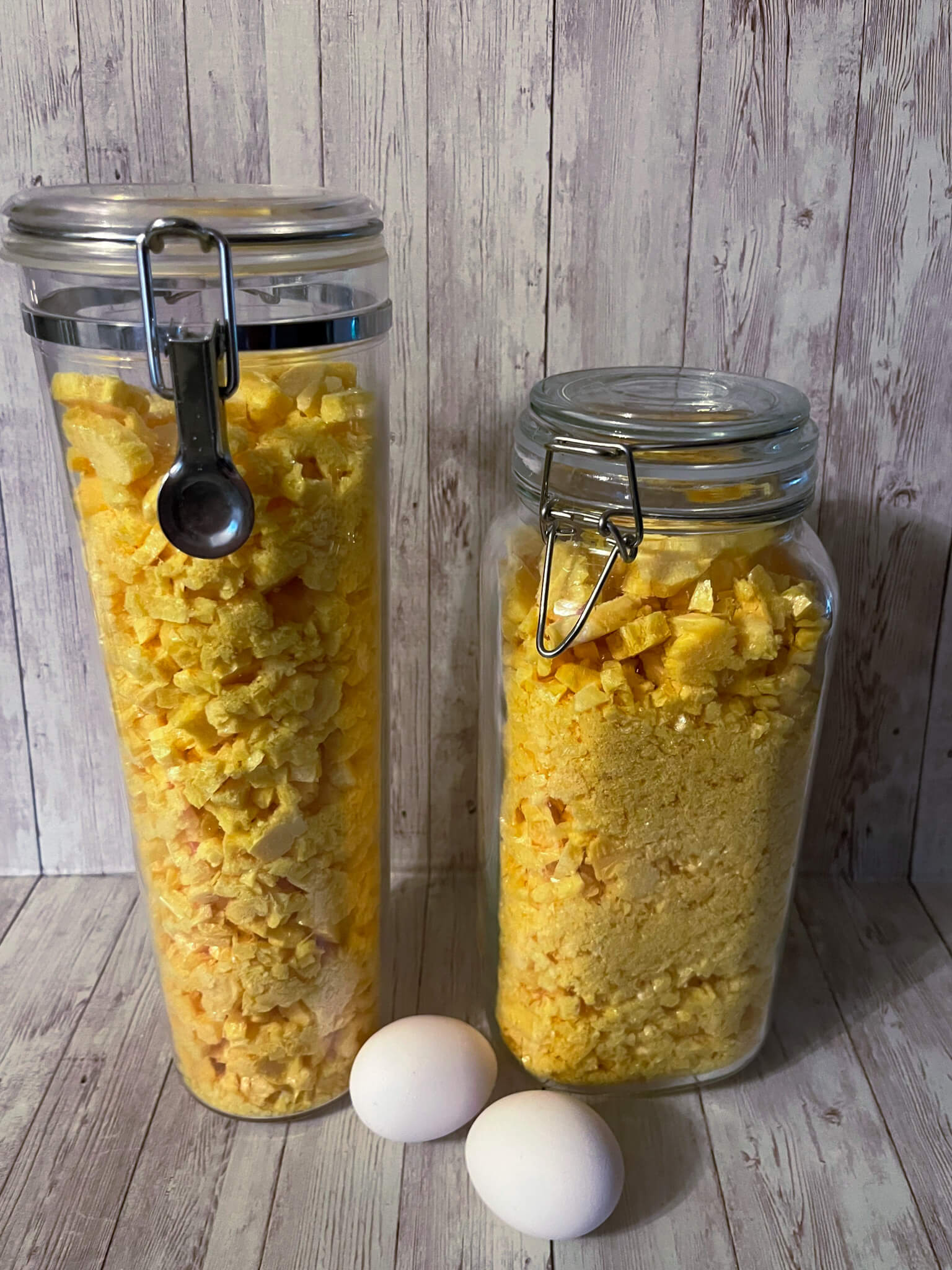The Incredible Process of Freeze-Drying Eggs
This post may contain affiliate links. If you use these links to buy something we may earn a commission.
Eggs are a versatile and essential ingredient in countless culinary creations. They serve as the foundation for a wide array of dishes, from omelets and quiches to cakes and cookies. However, one challenge with eggs is their relatively short shelf life, making them tricky to store for extended periods. Enter freeze-drying is a remarkable preservation technique that has revolutionized how we store and use eggs. We’ll explore the fascinating world of freeze-drying eggs and its benefits, applications, and how you can do it at home.
What is Freeze-Drying?
Freeze drying, also known as lyophilization, is a method of removing moisture from food while preserving its structure, flavor, and nutritional value. It involves three main steps: freezing, primary drying, and secondary drying. In the context of eggs, freeze-drying offers a way to store this perishable commodity for extended periods without compromising its quality.
The Process
- Preparation: The process begins by cracking fresh eggs and whisking them to homogenize the yolk and whites. This liquid egg mixture is then poured into specialized freeze-drying trays or containers.
- Freezing: The egg mixture is rapidly frozen to extremely low temperatures, typically around -40°F (-40°C). This freezing step solidifies the mixture and prepares it for the drying process.
- Primary Drying: In this stage, the frozen egg mixture undergoes sublimation, where ice transitions directly from a solid to a gas without becoming a liquid. The pressure in the chamber is lowered, and heat is applied to encourage this phase change. As a result, the ice crystals within the eggs turn into vapor, leaving behind freeze-dried egg solids.
- Secondary Drying: To further remove any remaining moisture, the freeze-dried egg solids undergo a secondary drying process. This step ensures that the eggs have a low moisture content, making them shelf-stable and resistant to spoilage.
Benefits of Freeze-Drying Eggs
- Extended Shelf Life: Freeze-dried eggs can be stored for years without refrigeration. This makes them an ideal option for preppers, outdoor enthusiasts, and anyone looking to stock their pantry with long-lasting ingredients.
- Nutritional Retention: Freeze-drying preserves the nutritional content of eggs, including their protein content, vitamins, and minerals. This makes freeze-dried eggs a valuable source of nutrition in emergencies or during outdoor adventures.
- Convenience: Freeze-dried eggs are lightweight and easy to transport, making them a convenient choice for camping, hiking, or travel. They are also quick to rehydrate, making meal preparation a breeze.
- Reduced Waste: By freeze-drying eggs, we can reduce food waste by extending their shelf life and minimizing the need to discard expired eggs.
Applications of Freeze-Dried Eggs
- Culinary Creations: Rehydrate freeze-dried eggs by adding water, and you have eggs ready for use in recipes like scrambled eggs, omelets, and baking. They can be used in any recipe that calls for fresh eggs.
- Emergency Food Supplies: Freeze-dried eggs are a valuable addition to emergency food stores, as they provide essential nutrition and are easy to store for long periods.
- Backpacking and Camping: Lightweight and non-perishable, freeze-dried eggs are a favorite among backpackers and campers looking for a convenient source of protein on the trail.
- Food Production: The food industry utilizes freeze-dried eggs in the production of various products like baked goods, sauces, and ready-made meals.
While commercial freeze-drying equipment can be expensive and complex, some enthusiasts have successfully freeze-dried eggs at home using consumer-grade freeze-dryers. If you’re interested in attempting this, be sure to follow safety guidelines and manufacturer instructions to ensure the best results.
Freeze-drying eggs is a remarkable process that has expanded the possibilities of how we use and store this essential kitchen ingredient. Whether you’re an outdoor enthusiast looking for lightweight and nutritious backpacking meals or someone interested in building a well-stocked emergency pantry, freeze-dried eggs offer a versatile and reliable solution. Understanding the freeze-drying process and its benefits can open up a world of culinary possibilities while also promoting sustainability through reduced food waste. So, the next time you crack an egg, consider the incredible journey it could take through the freeze-drying process.









One Comment